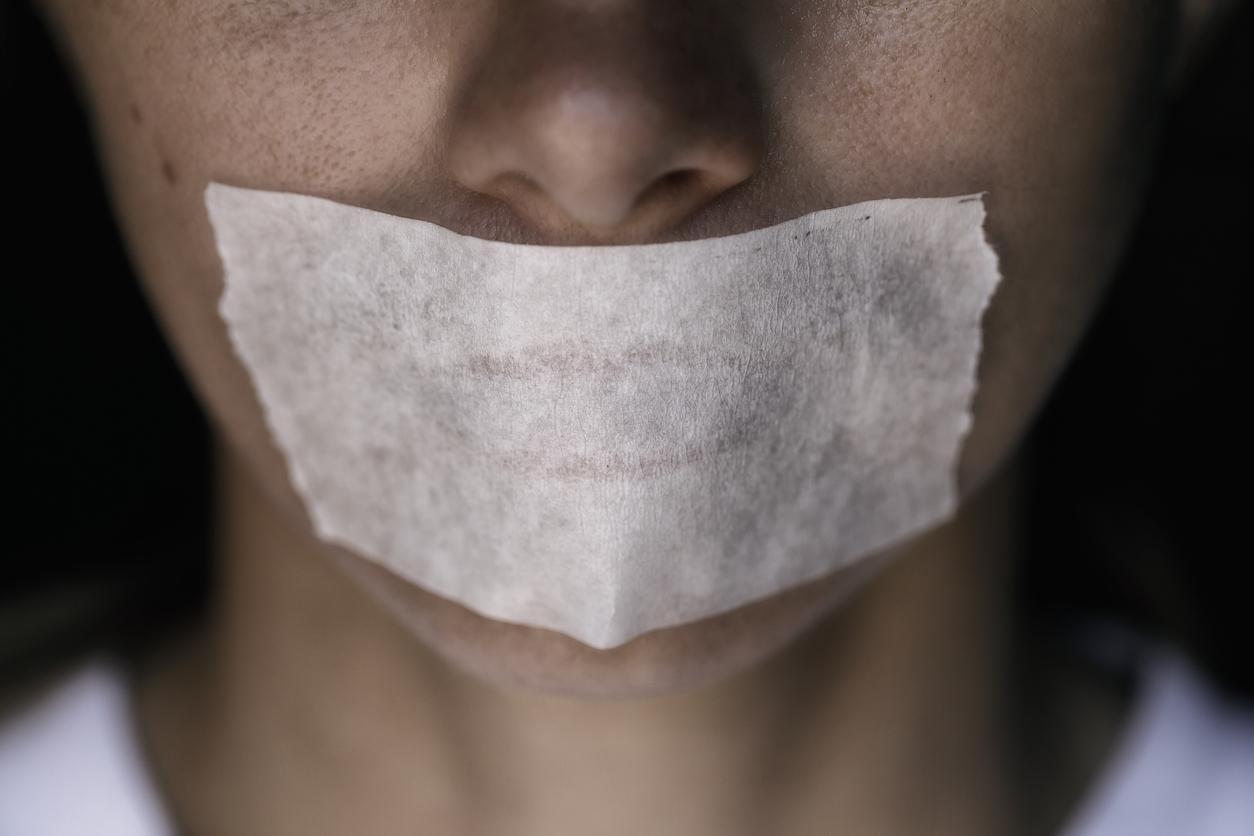On Twitter, American author Suzannah Weiss launched the hashtag #MyDoctorSaid to encourage women with chronic illnesses to share their misdiagnoses. Their appalling stories testify to the lack of credit given to the suffering of women.

Badly regarded by the doctors they consult, sometimes badly cared for, these women have experienced medical wandering, ineffective treatments and the condescension of health professionals. Since mid-October, they have been recounting their unfortunate experiences on Twitter under hashtag le hashtag #MyDoctorSaid (my doctor said).
Launched by feminist writer Suzannah Weiss, it has since collected hundreds of testimonies wandering from doctor to doctor, unable to find what they were suffering from and who even doubted their ailments.
Female suffering, systematically minimized or ignored
This medical wandering, Suzannah Weiss knew it herself. On her Twitter account, she says that for 11 long months, she consulted 17 different doctors. Only the last managed to find out what she was suffering from.
Women with chronic illnesses: how long & how many doctors did it take you to get diagnosed? I counted 11 months & 17 doctors & wrote down what each did to show what we go through just to begin to heal. pic.twitter.com/2TJ7FOyH3B
— Suzannah Weiss (@suzannahweiss) October 16, 2018
“Doctor #1 told me nothing was wrong with me. Doctor 2 told me my symptoms were caused by anxiety and performed invasive tests that made them worse. (…) Doctor 4 increased my dose of antibiotics before test results showed that I had no infection.(…)Doctor 11 prescribed me medication which made me irritated and depressed.(…)Doctor 13 gave me said it was in my head. (…) Doctor 16 suggested I go see a psychiatrist. Doctor 17 finally tested me for the pathology I had.”
Here is what we “have to go through to only begin to heal”, laments the young woman, who explains that the ills from which women suffer are systematically questioned, questioned and minimized.
Immediately shared on Twitter, her hashtag was emulated: hundreds of women told similar stories, with sometimes dramatic outcomes. Like this young woman, who recounts having consulted her doctor because her left breast was making her suffer.
Me: my left breast hurts and I feel like I have electrical charges running through it, can I get a mammogram?
Male Dr: breasts hurt, too young for a mammogram, not like it’s cancer.
Extreme narrator voice: it was cancer.#MyDoctorSaid
— ?Morbid Gurl? (@mouthygurl) October 24, 2018
“I feel like electric shocks, can I have a mammogram?” Her doctor told her that it was not necessary because she was too young to have breast cancer. But it was indeed one.
Many women also say that the intense pain they feel during their period is completely ignored by the doctors they consult, as if it was normal or that the problem was “in their head”. In most cases, however, it is a disease: endometriosis, which affects one in 10 women of childbearing age.
Me: I’m worried I have ovarian cancer, I always have pain near my ovary.
Doc: How long has this been going on?
Me: On and off for seven years.
Doc: (laughing) If it was cancer, you’d be dead by now.It took 5 more years to be diagnosed with Stage IV endometriosis.#MyDoctorSaid
— Confluence Nutrition (@malachesky) October 26, 2018
“- Me: I’m afraid of having ovarian cancer, I always have pain near my ovary.
– How long has it been?
– Me: intermittently for 7 years.
– If it was cancer, you’d be dead by now.
It took 5 more years to be diagnosed with stage IV endometriosis.”
“It’s in Your Head”
For Suzanne Weiss, this condescending or contemptuous attitude of the medical profession towards the ills of women testifies to the existence of real “prejudices”, from which “racialized people, LGBT + people and other marginalized populations” also suffer.
She is not the only one to have made this observation. In May 2008, the New York Times published an article by the health journalist Camille Noe Pagán also recounted her own experience of neglecting her suffering and questioned health professionals to find out whether her case was isolated or not. Unfortunately he was not.
“I can’t tell you how many women I’ve seen who have gone to many doctors, only to be told that their issues were stress-related or all in their heads,” the newspaper said at the time. New York Times Dr. Fiona Gupta, neurologist and director of health and wellness in the department of neurosurgery at the Icahn School of Medicine at Mount Sinai in New York.
“Many of these patients were later diagnosed with serious neurological problems, such as multiple sclerosis and Parkinson’s disease. They knew something was wrong, but they were ruled out and told not to. trust their own intuition.”
A loss of luck
Not only do misdiagnosed women receive inappropriate and ineffective treatments, but they also risk drifting away from the medical world and therefore seeing their health deteriorate, observes Suzannah Weiss, who concludes: “We are considered irrational when we turn towards alternative medicine, but conventional caregivers kick us out, dismiss our worries and prescribe things that make our condition worse.”
“This is an issue that feminism needs to take on. We are sick, suffering and even dying because people still don’t trust our knowledge of our own bodies.”

.















